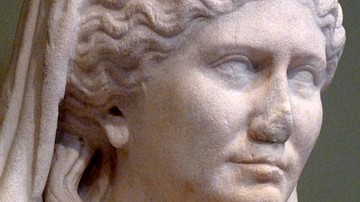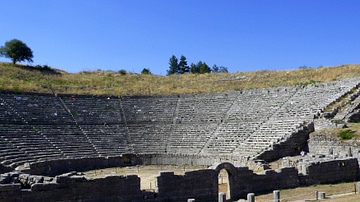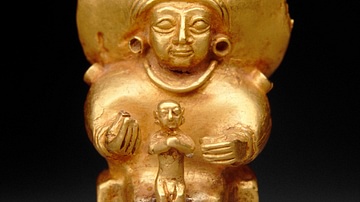Search Definitions
Browse Content (p. 247)

Definition
Janus
The Roman Republic owed much to the cultural influence of its Greek neighbors. For centuries the Greeks occupied a prominent position to the south on the island of Sicily. A series of wars in the 2nd and 3rd centuries BCE brought to the city...

Definition
Cybele
History verifies the importance of religion not only on a society's development but also on its survival; in this respect the Romans were no different than other ancient civilizations. During the formative years of the Roman Republic, especially...

Definition
Tulum
Tulum, on the east coast of the Yucatan peninsula in southern Mexico, was an important Mesoamerican centre which displayed both Maya and Toltec influence. Tulum was a major trading and religious centre between the 11th and 16th centuries...

Definition
Cusco
Cuzco (also Cusco or Qosqo) was the religious and administrative capital of the Inca Empire which flourished in ancient Peru between c. 1400 and 1534 CE. The Incas controlled territory from Quito to Santiago, making theirs the largest empire...

Definition
El Tajin
El Tajin is located near the coast of eastern Mexico and was an important Mesoamerican centre which flourished between 900 and 1100 CE. A part of the Veracruz culture, the city's architecture also displays both Maya and Oaxacan influences...

Definition
Copan
Copán (in modern Honduras) is located on the floodplain of the river of the same name. It was the most southerly of the Classic Maya centres and, at an altitude of 600 metres, the highest. Copán reached the height of its power in the 8th...

Definition
Eleusis
Eleusis was a deme of Athens and most famous for its annual festival of the Mysteries in honour of Demeter and Persephone. The site was also an important fortress protecting Attica and held several other important festivals, notably the Thesmophoria...

Definition
Dodona
Dodona in Epirus, north-west Greece, lies in a valley on the eastern slopes of Mt. Tomaros and was famed throughout the ancient Greek world as the site of a great oracle of Zeus. The site was expanded in the Hellenistic period, and one of...

Definition
Sauska
Sauska (also known as Shaushka, Sausga, and Anzili) was the Hurrian-Hittite goddess of fertility, war, and healing. She was worshipped throughout the region known as Hanigalbat (present day Iraq, Syria, and Turkey) from the time of the Hurrians...

Definition
Cerdic
Cerdic of Wessex (r. 519-534) was King of the West Saxons and the founder of Wessex. His influence was so profound that later genealogies of the English monarchy would claim that all the sovereigns of Britain, save for Canute, Hardecanute...